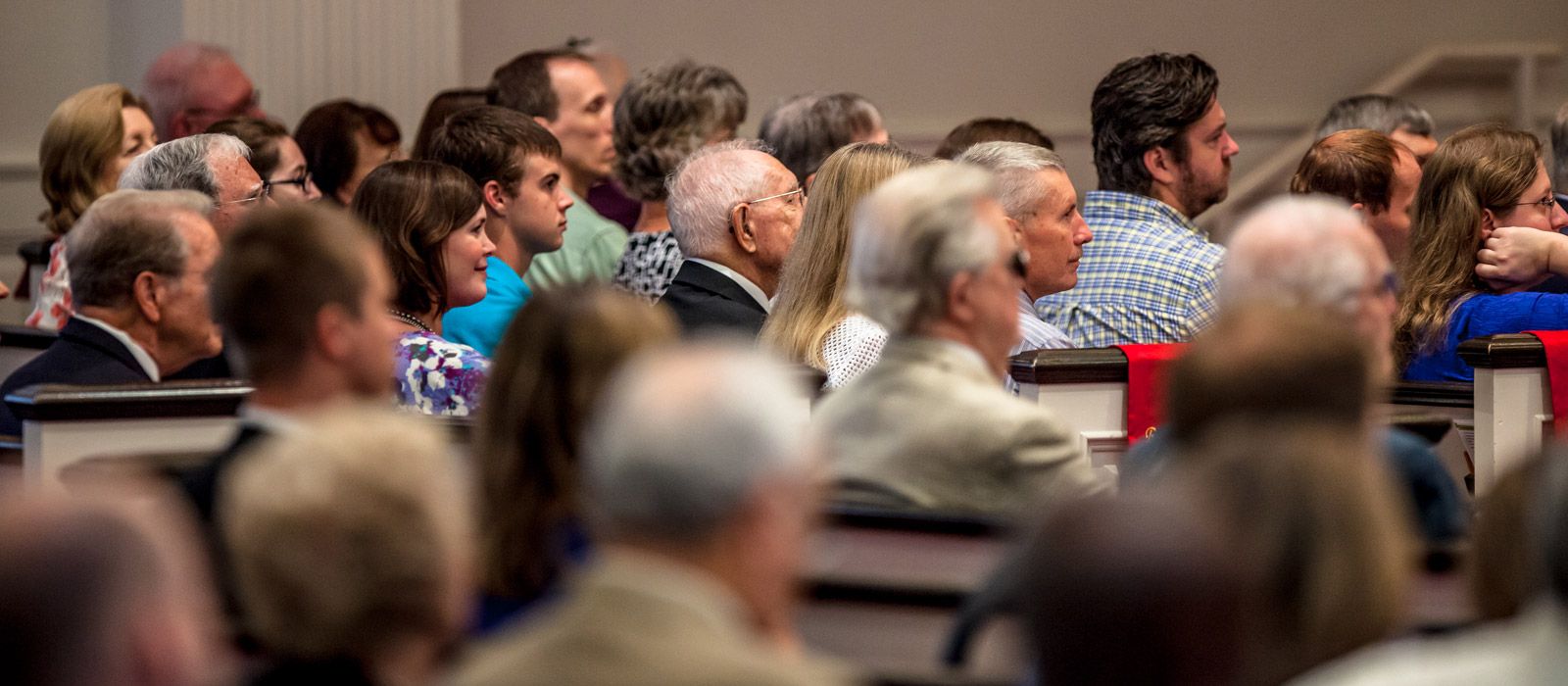WHAT WE BELIEVE – RELIGIOUS LIBERTY
In Matthew 22:21, Jesus says “Give to Caesar what is Caesar’s, and to God what is God’s.” With that phrase, our Savior establishes the validity of human government and its limits. Caesar has his name and image on certain things, so they rightly belong to him. In other words, there is a proper domain and function for human government; human government is ordained and established by God himself.
However, God has stamped his own image on every one of us, including Caesar and every President, senator, representative, king, queen, and dictator that has ever lived. Every human being is made in his image and likeness, and we rightly belong to him. Understanding this relationship between who we are as human beings, made in the image of God, and the establishment and purpose of government in our world, leads to our understanding of religious liberty.
The Baptist Faith and Message 2000 states this concerning our understanding of religious liberty: “God alone is Lord of the conscience, and He has left it free from the doctrines and commandments of men which are contrary to His Word or not contained in it. Church and state should be separate. The state owes to every church protection and full freedom in the pursuit of its spiritual ends. In providing for such freedom no ecclesiastical group or denomination should be favored by the state more than others.
“Civil government being ordained of God, it is the duty of Christians to render loyal obedience thereto in all things not contrary to the revealed will of God. The church should not resort to the civil power to carry on its work. The gospel of Christ contemplates spiritual means alone for the pursuit of its ends. The state has no right to impose penalties for religious opinions of any kind. The state has no right to impose taxes for the support of any form of religion. A free church in a free state is the Christian ideal, and this implies the right of free and unhindered access to God on the part of all men, and the right to form and propagate opinions in the sphere of religion without interference by the civil power.”
Religious liberty has always been a Baptist principle, beginning with such early Baptists as John Smyth, Thomas Helwys, Roger Williams, John Clarke, Obadiah Holmes, and John Leland. However, this commitment is to religious liberty for all peoples, not just for Baptists, because we believe that every human being is created in God’s image, and therefore possesses full rights and freedoms granted by God. Ultimately, religious liberty is not a gift of the U.S. Constitution but the gift of God.
Religious liberty is therefore much more than a legal doctrine. It is the recognition that our very nature as human beings requires respect for this right and liberty. No government has the right to claim coercive power over any individual’s conscience in matters of faith and religious belief. Although the Bible commands us as believers to respect our governing authorities (Rom 13:1-7), government has no right to demand ultimate allegiance from anyone. Only God is able to do that (Matt 22:21).
Therefore, church and state should be separate. As Baptists reject the idea of a state church as well as the idea that the church should rely on the state to accomplish its gospel ministry. This separation of church and state doesn’t mean an artificial exclusion of religious belief and expression from the public square, it means the government cannot require such an expression. The state must not be hostile to the church or to the free and full participation of all citizens, no matter their religious beliefs, in the public life of the nation.
Religious liberty also requires that as believers, we obey the government and its laws (insofar as they do not contradict the laws of God found in his Word). The government has a right to tax, as well as a right and responsibility to maintain order and to protect its citizens. It is a “minister” of good and of justice (Rom 13:1-7). But no government has the right to coerce the conscience or to persecute citizens because of their religious convictions.
Praise God that we have the privilege of religious liberty in the time and place that we live, and that we are able to worship and live for him as he calls us to do. As believers, may we continue to pray for our leaders and for our continued religious liberty (1 Tim 2:1-4).
God bless,



